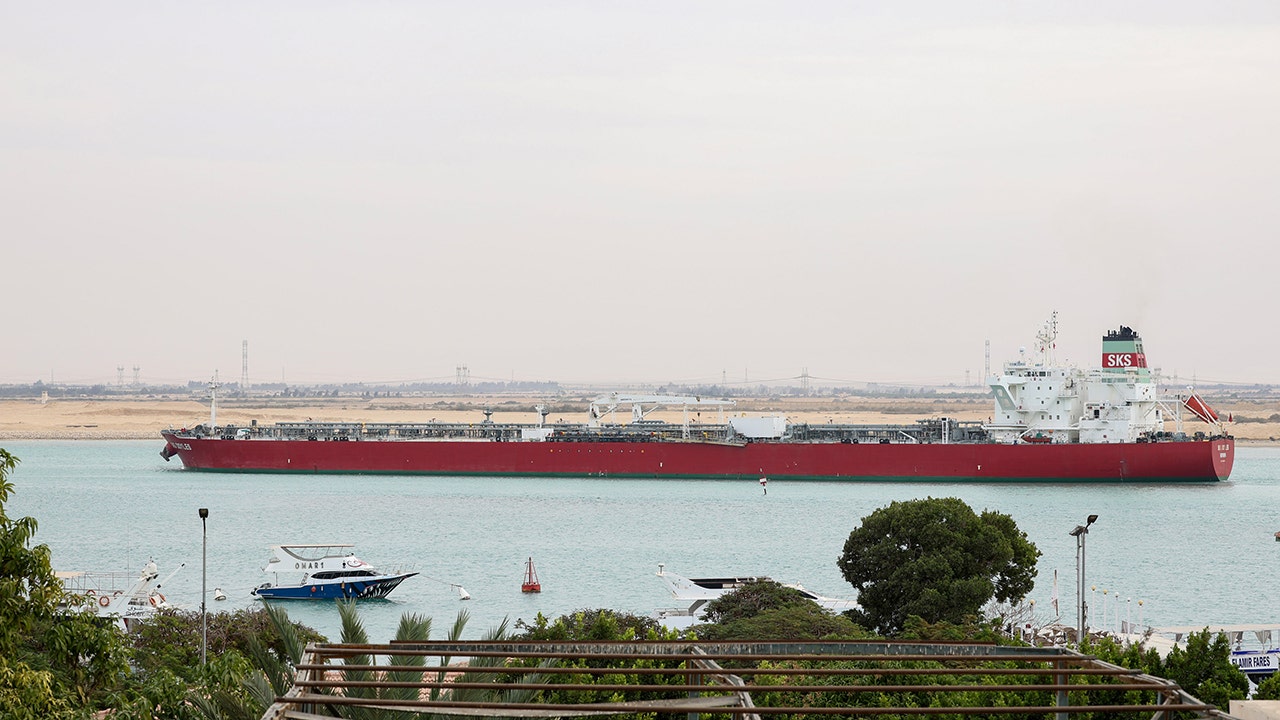Could global shipping be affected by tensions in the Middle East?
An examination of the world's most congested bottlenecks near Israel

The price of oil has increased due to attacks on ships in the Red Sea. Currently, prices are around $80 per barrel, which is significantly lower than they were when Russia invaded Ukraine. At that time, oil futures jumped to more than $100 per barrel. However, since June 2022, prices have remained low. After the Oct. 7 attacks on Israel, prices spiked, but have since been declining.
According to Kevin Book, the Managing Director of Clearview Energy Partners, it is counter-intuitive that oil prices have decreased since October 7th, given the amount of oil produced in the neighboring and adjacent countries to Israel.

Israel is situated close to major oil and gas producers, including Saudi Arabia, Iraq, and Iran, and is also encircled by significant oil trade routes.
"Although the risks to production may be reduced due to the current peaceful relationship between Saudi Arabia and Iran, the market may not fully account for the potential risks to transportation, which could lead to underestimating the overall level of risk."
The strait is commonly considered the world's most crucial oil chokepoint, with approximately one-fifth of daily oil consumption passing through it.

"American Exploration and Production Council CEO Anne Bradbury stated that people are closely monitoring Iran and its affiliated groups to determine if the conflict will spread to that region, which would result in more significant supply disruptions in the global crude market than what has already occurred."
The conflict between Israel and Hamas has led to an increase in tensions in the waters surrounding the Arabian Peninsula. In recent weeks, Houthi rebels have seized a carrier ship and attacked commercial ships in the Red Sea.
Maj. Gen. Patrick Ryder stated at a recent briefing that the Pentagon continues to take the situation in the Red Sea very seriously.

The coalition, comprising more than 20 countries, is working to safeguard trade routes, but shipping companies are perplexed about the group's actions to protect ships. Some companies have already rerouted vessels away from the area and are requesting additional clarity and specifics regarding the coalition's plans.
"The Strait of Hormuz poses significant risks to travel, and other adjacent waterways with transportation risks could also affect the oil market."
In the Strait of Hormuz, an Iranian drone flew within 1,500 yards of the USS Dwight D. Eisenhower Aircraft carrier and recorded footage of the vessel's journey. Meanwhile, in the Gulf of Aden, missiles targeted an Israeli tanker. The U.S. has also shot down drones flying too close to ships near the Bab El-Mandeb Strait.

"If one tanker stops, traders will start to bid up the price of oil in the region," Book stated.
The U.S. is considering re-imposing sanctions on Iran, which could lead to increased hostility along key shipping routes. Some experts warn that this could have a significant impact on global oil prices. However, Bradbury believes that the U.S. should focus on increasing its own oil production rather than restricting it.
An increase in oil prices could make it harder to reduce inflation, which is currently at 6.9%, more than double the pre-pandemic rate. The International Monetary Fund predicts that a 10% rise in oil prices could increase inflation by about 0.5%.

In 2014, Congress decided not to renew a 35-year-old agreement that provided Israel with oil from the U.S. in emergency situations. Instead, Israel and the U.S. pledged to increase the production of clean energy. Israel has since increased its natural gas production and is issuing new leases for exploration, even during times of war. However, some lawmakers argue that if Israel requires oil, the U.S. should be prepared to deliver it.
"Sen. Joe Manchin, D-W.Va., stated that we should give everything we can to ensure their success and that we need the Saudis' help to monitor and bring order to the Muslim and Arab world."
OPEC+ countries, including Saudi Arabia, are increasing oil output cuts for early next year, bringing the total to 2.2 million barrels per day.
"The oil market is usually tight, but when there is slack, it's due to OPEC producers removing supply from the market. However, if a conflict occurs in the Middle East, some of the supply that could help in a tight market may also be blocked, making the situation precarious. Despite appearing smooth now, this could be a historical moment when the market is at risk."
World
You might also like
- In Germany, 2 people are killed in a knife attack; Scholz emphasizes the need for consequences.
- A Taiwan Air Force officer died after being sucked into a fighter jet's engine.
- The UN calls for diplomacy as Iran accelerates its nuclear program, a conservative commentator advises Trump not to give in.
- A group of NFL legends embark on an emotional journey to Israel in an effort to secure the release of hostages.
- Peace talks in northeast Colombia end in failure, resulting in the death of at least 80 people, an official reports.



















